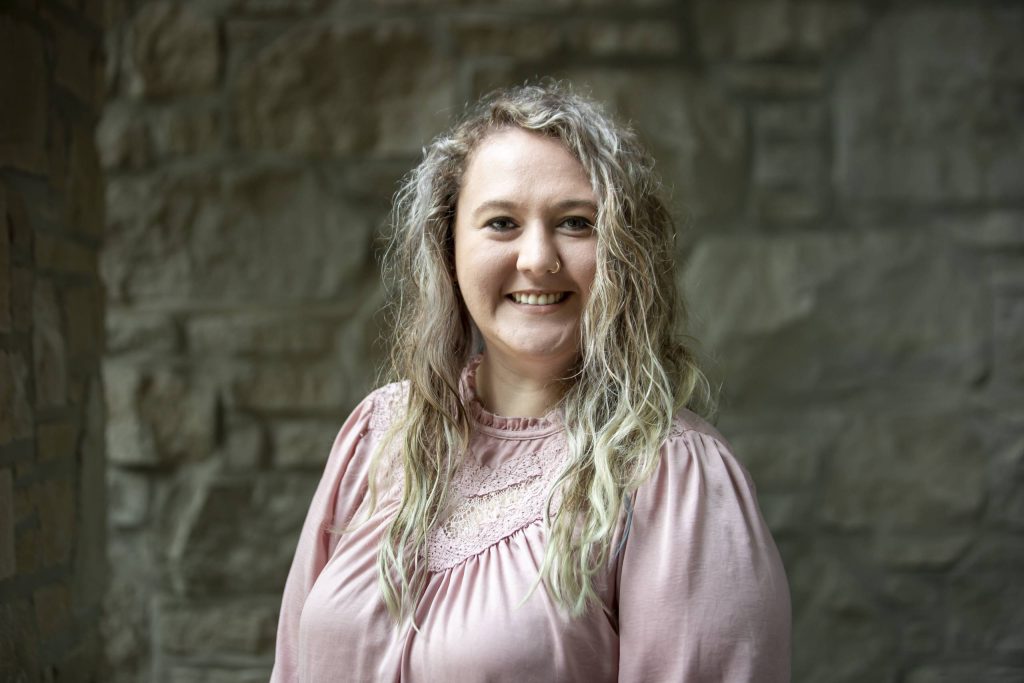
Growing up, Atmospheric Sciences graduate student Sarah Weaver experienced three tornados. Now, through her PhD program at Mizzou, she is contributing to national hurricane forecasts, helping keep others safe from devastating severe weather and finding her career path.
“I honestly think maybe hurricane forecasting is my calling,” Weaver said. “You know you love it if you’re not working, and I just love forecasting and forecasting through hurricane season.”
Weaver’s experiences with tornados unexpectedly set her on a path that would lead to Mizzou and hurricane forecasting. After seeing small, tight-knit communities grapple with the aftermath of these events ripping people’s homes and lives apart, she was inspired to dedicate her work to warning others when they are in danger’s way.
“Similar to tornadoes, hurricanes can affect a lot of people,” Weaver said. “Something I am really passionate about, whether hurricanes or other severe weather, is public safety.”
Weaver’s advisor, Anthony Lupo, knew about this passion, so when he was asked to contribute to the annual Atlantic Hurricane Forecast report published by Colorado State University this year, he offered Weaver the opportunity to help. The forecast is a compilation of forecasts from about half a dozen universities across the country and is relied upon by media outlets and other experts to warn residents, business owners and vacationers headed to the Atlantic coast what they can expect for the year.
“You may not think hurricanes affect Missourians, but occasionally we do get remnants of these,” said Lupo, Professor of Atmospheric Science. “And, of course, they can affect travel plans as folks head south for vacations over the summer.”
What do Weaver and Lupo expect to see this season? Their submitted prediction calls for a total of 15 named storms to form in the Atlantic between June and October with eight of those being tropical storms, four category 1-2 hurricanes and three being category 3-5 hurricanes.
Weaver also expects to see activity start out slow and pick up more toward the end of the hurricane season as weather patterns are expected to shift into an El Niño pattern with warmer surface temperatures in the ocean. These ocean surface temperatures are key to the formation of tropical storms and hurricanes.
“This year looks to be enzo neutral – normal temperatures – but ocean temperatures could shift to be a bit warmer toward the end of summer, so that is why our prediction is a bit higher than normal,” Weaver said.
She also examined past weather records and identified several years with similar patterns of average ocean temperatures that warmed up later to see what hurricane activity looked like in those years.
“Seeing the pattern – what’s happened in the past – is really important when predicting hurricanes,” she said.
Weaver’s own past includes an unpredictable road to Mizzou for the budding meteorologist.
She first earned her bachelor’s and master’s degrees in meteorology in her home state through Mississippi State University and built a social media following of 6,000 people who look to her for forecasting information. But, she wanted to reach more people.
It was this desire that brought her to the Missouri School of Journalism. Initially, Weaver was taking online classes as part of a master’s program in the J-school. But, when a journalism professor learned about Weaver’s interests in meteorology, they knew an introduction to Lupo, who had an opening for a PhD student, was in order.
Weaver, a first-generation college student, hadn’t previously considered adding the title of doctor to her name, but soon recognized that a move to Columbia was the right path for her.
“It was a blessing in disguise,” she said. “I really love Mizzou. Everyone has been so welcoming, and I just feel like I belong here.”
Weaver didn’t just find a new home in Columbia and Mizzou, she also found purpose in hurricane forecasting.
“These small, close-knit communities, when they lose something, they lose a lot,” Weaver said, “but things can be replaced. People can’t. At the end of the day, if I can save at least one life, I’m grateful.”